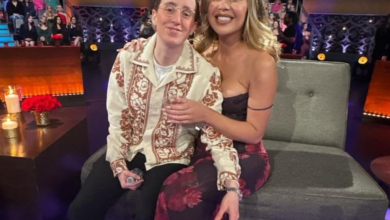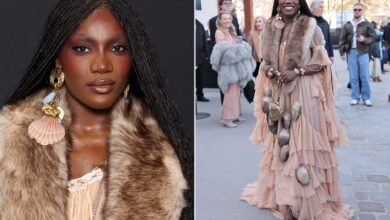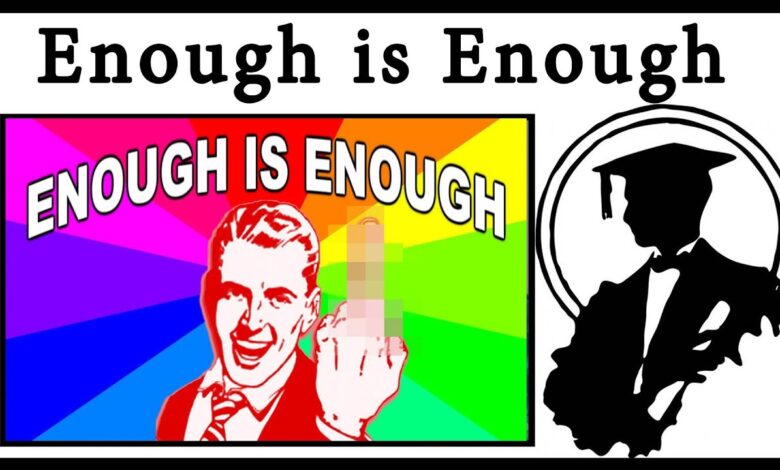
With love meghan meme culture has become too powerful. This isn’t just about funny images; it’s a deep dive into how memes, fueled by the public persona of Meghan Markle, have become a dominant force in modern communication. We’ll explore the evolution of meme culture, its impact on public discourse, and whether this constant barrage of often humorous (or sometimes hurtful) imagery has crossed a line.
We’ll look at the power dynamics within meme creation, and examine the potential for memes to shape public perception.
The analysis will cover Meghan Markle’s prominent role in this meme-driven landscape, from the creation and sharing of memes to the impact on different demographics. We’ll dissect the memes themselves, examining their themes and intended messages. Furthermore, the discussion will explore the potential downsides of meme culture’s influence, including its ability to manipulate public opinion, and the ethical considerations involved.
Defining “Meme Culture”
Meme culture, a pervasive and evolving phenomenon, has fundamentally reshaped how we communicate and share ideas in the digital age. Its origins are intertwined with the rise of the internet and social media, transforming traditional cultural expression through its unique characteristics and rapid dissemination. This dynamic form of cultural exchange is not merely a passing trend; it has become an integral part of contemporary society.The concept of a “meme” itself, borrowed from biology, describes a unit of cultural information that spreads from person to person.
In the digital realm, this unit takes the form of images, videos, text, and other formats, often with humorous or satirical content. This contagious nature, coupled with the immediacy of online platforms, fuels the rapid spread and evolution of meme culture.
Evolution of Meme Culture
Meme culture’s evolution mirrors the evolution of the internet itself. Initially, memes were often simple images or phrases, but as technology advanced, so did the complexity and sophistication of the memes. The introduction of more sophisticated editing tools and wider social media platforms allowed for a more intricate and elaborate form of cultural expression. This evolution is reflected in the increasing complexity of meme structures, including the use of layered images, animation, and creative text.
Characteristics of Meme Culture
Meme culture possesses distinct characteristics that differentiate it from other forms of cultural expression. Memes are typically:
- Relatable and shareable: Memes often tap into universal experiences, emotions, or social trends, making them highly relatable and motivating to share among online communities. Examples include memes about relatable struggles, like procrastination or bad days, which resonate across various demographics.
- Fast-paced and dynamic: The rapid spread of memes across social media platforms creates a constantly evolving landscape. New memes emerge and gain popularity, and existing memes are adapted and transformed, contributing to a dynamic and ever-changing environment.
- Collaborative and participatory: Memes are not static entities; they are actively created, shared, and adapted by users. This collaborative nature fosters a sense of community and participation, where users can contribute to the meme’s evolution through variations and creative interpretations.
- Often humorous or satirical: Memes frequently employ humor and satire to comment on social issues, current events, or pop culture trends. This humorous aspect makes memes engaging and accessible, drawing in a broader audience.
Types of Memes and Their Impact
Memes encompass a wide range of forms, each with its unique impact on communication. Some examples include:
- Image macros: These are a cornerstone of meme culture, using pre-existing images with added text or modifications to create humorous or satirical content.
- Video memes: These memes utilize short video clips often edited with music, sound effects, or text overlays to convey a particular message.
- Text-based memes: These memes rely solely on text, often in the form of short phrases or sentences, conveying a specific sentiment or idea.
Meme Culture vs. Traditional Cultural Expression
| Feature | Meme Culture | Traditional Cultural Expression |
|---|---|---|
| Medium | Digital platforms (social media, online forums) | Physical artifacts (paintings, sculptures, music scores) |
| Dissemination | Rapid, widespread online sharing | Slower, often localized distribution |
| Audience | Global, diverse audiences | Often specific communities or geographical areas |
| Transformation | Constant adaptation and evolution | Often more stable and less dynamic |
| Ownership | Collaborative, with no single creator | Often attributed to a specific artist or creator |
Meghan Markle’s Role in Meme Culture: With Love Meghan Meme Culture Has Become Too Powerful
Meghan Markle, a prominent figure in the public eye, has become a frequent subject of meme creation. Her public image, shaped by royal life, media portrayals, and personal choices, has provided a rich source of material for humorous and often satirical commentary through memes. The memes encapsulate diverse perspectives, ranging from admiration to critique, often highlighting the complexities of her public persona.The proliferation of memes featuring Meghan Markle reflects the power of meme culture to quickly and widely disseminate information and opinions.
These memes, often employing recognizable imagery and formats, have effectively captured aspects of her public persona, sparking conversations and creating a sense of shared understanding (or misunderstanding) within online communities. This analysis will explore the specific types of memes created, the themes they embody, and the trends that emerge in their creation.
Meghan Markle’s Public Image and Meme Creation
Meghan Markle’s public image, influenced by royal duties, media coverage, and her own statements, has played a crucial role in shaping the content of memes. This image is frequently portrayed in a manner that highlights contrasting narratives. For instance, some memes present her as a symbol of strength and empowerment, while others depict her as a target of criticism or ridicule.
This duality fuels the creation of a variety of memes, reflecting the complex and often conflicting opinions surrounding her.
Specific Memes Featuring Meghan Markle
A variety of memes featuring Meghan Markle use different formats and approaches. Some memes employ humorous juxtapositions, placing her in unexpected situations or contrasting settings. Others rely on ironic commentary, highlighting perceived inconsistencies or contradictions in her public statements or actions. These memes often utilize existing meme formats, adapting them to fit the context of Meghan Markle.
Analysis of Meme Content
Meghan Markle-related memes frequently touch upon themes of public scrutiny, royal life, and societal expectations. These themes are often presented through visual humor, employing visual cues and text to convey specific meanings. Memes frequently play on common perceptions of the royal family, celebrity culture, and the pressures faced by public figures.
Trends and Themes in Meghan Markle-Related Memes
Several trends and themes are prominent in Meghan Markle-related memes. The memes often reflect a sense of commentary on the dynamics of royal life and the media’s portrayal of public figures. The themes often touch upon issues of media scrutiny, societal expectations, and the complexities of navigating a public persona. The memes sometimes use visual cues to express opinions on her personal choices and decisions.
Examples of Memes Highlighting Different Aspects of Her Public Persona
Memes showcasing different facets of Meghan Markle’s public persona are numerous. For instance, memes that celebrate her strength and resilience as a woman navigating a demanding role are contrasted with those that highlight the challenges and pressures of public life. These contrasting memes often reflect the polarized views surrounding her, illustrating the varied opinions held by different online communities.
The Concept of “Too Powerful”
Meme culture, a vibrant and ever-evolving landscape of shared humor and social commentary, has undeniably reached a point where its influence is substantial. The sheer volume of memes circulating online, their ability to rapidly trend, and their capacity to shape public discourse raises questions about their potential impact. The statement “meme culture has become too powerful” suggests a concern over this influence, prompting a deeper exploration of its nature and implications.The concept of “too powerful” in the context of meme culture is multifaceted.
It implies that the reach and impact of memes, particularly their capacity to shape perceptions and drive narratives, have surpassed a threshold of acceptable or manageable influence. This often stems from a feeling that memes can manipulate public opinion, dictate trends, and even affect political discourse, potentially overshadowing more considered forms of communication. This concern often goes beyond simple amusement and touches upon the ability of memes to spread misinformation or create negative narratives.
Defining “Too Powerful” in Meme Culture
Meme culture’s “too powerful” status can be interpreted in several ways. It encompasses the potential for memetic narratives to become dominant and overshadow other forms of information dissemination. It also suggests that the speed and scale of memetic spread can overwhelm individuals’ ability to critically evaluate and process information. Moreover, the pervasiveness of memes can contribute to the creation and reinforcement of stereotypes, prejudice, and harmful biases.
Negative Consequences of Meme Culture’s Influence
The rapid spread of memes, while entertaining, can have unintended consequences. Misinformation can spread rapidly through memetic channels, impacting public health decisions, political discourse, and social interactions. Memes can also perpetuate harmful stereotypes, particularly those targeting marginalized groups, potentially exacerbating existing societal inequalities. This can create a climate of negativity and division, where online conversations become dominated by quickly-spreading, potentially damaging narratives.
Impact Comparison: Meghan Markle-Related Memes and Other Trends
Meghan Markle-related memes, like any other prominent meme-driven trend, reflect the broader influence of meme culture. Their impact, however, is often perceived differently due to the celebrity status of the subject. While other meme trends might focus on more general humor or pop culture phenomena, Markle-related memes often engage with discussions of public perception, media portrayal, and personal identity.
The impact of these memes is often more directly linked to public discourse and perceptions of the individual, highlighting the complex relationship between celebrity, media, and online culture.
Interpretations of “Meme Culture Has Become Too Powerful”
The statement “meme culture has become too powerful” can be interpreted in several ways. Some see it as a criticism of the lack of critical thinking and evaluation of information in the digital age, where memes are often consumed without proper scrutiny. Others view it as a reflection of the profound influence of online communities and their ability to shape public opinion.
Ultimately, the interpretation is highly subjective, depending on the individual’s perspective and priorities within the context of meme culture.
Analyzing Meme Power Dynamics
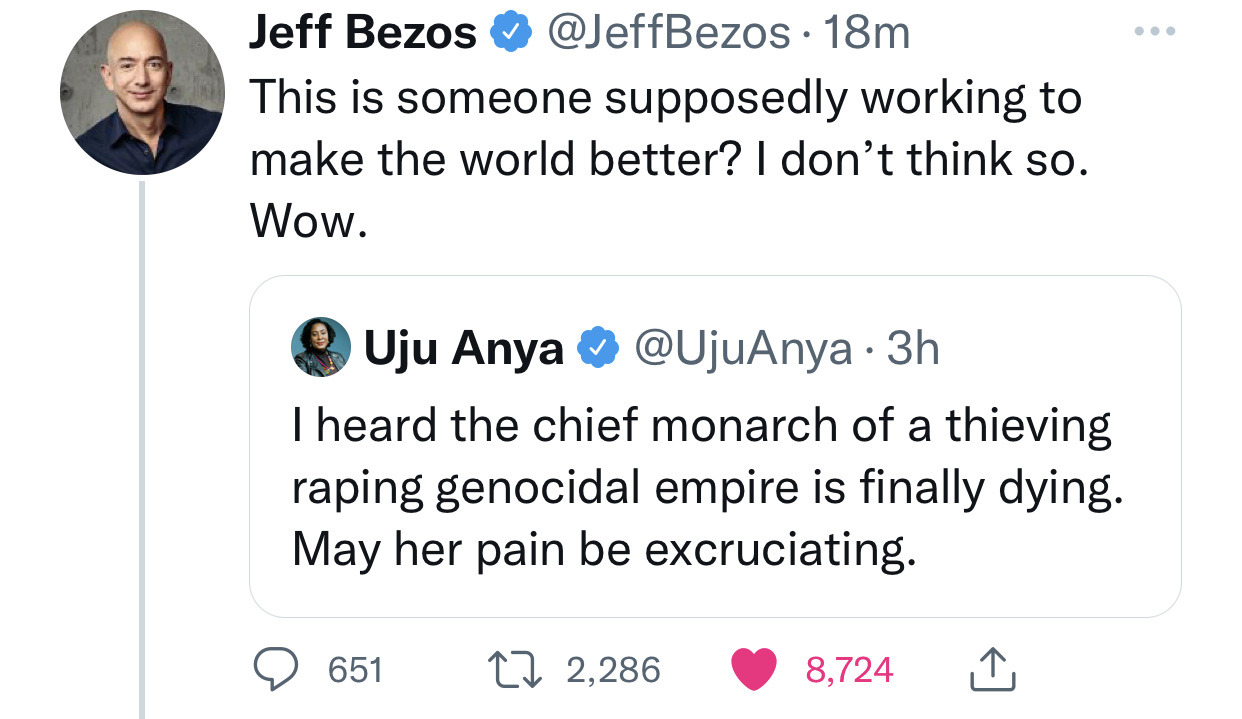
Meghan Markle’s presence in meme culture has undeniably sparked a significant and complex interplay of power dynamics. Memes, often seemingly innocuous, can wield considerable influence, shaping public perception and discourse in ways that extend far beyond their initial intent. This analysis delves into the factors driving the perceived power of Meghan Markle-related memes, examining their impact on public perception and discourse, and exploring the mechanisms of their rapid and widespread dissemination.The power of a meme often lies not in its inherent quality but in its ability to resonate with existing social anxieties, cultural trends, and pre-existing narratives.
This resonance allows memes to amplify and distort narratives, sometimes leading to misinterpretations and perpetuating biases. Meghan Markle’s visibility and role as a public figure make her a particularly potent subject for memetic engagement, amplifying the potential for both constructive and destructive memetic effects.
Factors Contributing to Perceived Meme Power
The pervasive nature of Meghan Markle-related memes stems from several interconnected factors. Public figures, particularly those with a high profile, naturally become focal points for public discussion and critique. This inherent interest in public figures often translates into a ready-made pool of material for meme creation. The immediacy and accessibility of digital platforms allow memes to rapidly proliferate, reaching vast audiences in a matter of hours or even minutes.
Moreover, the often subjective and emotional nature of meme creation can trigger strong reactions and reinforce pre-existing biases, further fueling the spread and impact of these memes.
Meme Culture’s Influence on Public Perception and Discourse
Meme culture’s impact on public perception is profound. Memes can effectively condense complex narratives into easily digestible formats, quickly spreading across various platforms. This rapid dissemination can create a sense of shared understanding or collective experience, even if that understanding is flawed or misrepresented. Public discourse, shaped by the prevalent memes, can shift in tone and direction, potentially polarizing opinions or reinforcing existing viewpoints.
This influence is particularly noteworthy when examining the public perception of public figures like Meghan Markle, whose public image can be profoundly affected by the proliferation of memes.
Mechanisms of Meme Spread
Memes often leverage pre-existing cultural trends and social anxieties. The success of a meme hinges on its ability to capture these prevailing sentiments and translate them into a humorous or relatable format. Social media algorithms play a crucial role in meme proliferation. Algorithmic biases and user engagement patterns contribute to the rapid spread of memes, leading to widespread exposure.
The virality of memes often relies on a combination of these factors, generating an exponential increase in visibility and impact.
Shaping Public Opinion and Perceptions
Memes, though often perceived as lighthearted, can exert a considerable influence on public opinion and perceptions. The pervasive and repetitive nature of memes can solidify particular viewpoints, creating a form of cultural conditioning. This can be especially potent when examining the narratives surrounding public figures. The sustained exposure to specific memes can subtly shape perceptions and contribute to the overall public image of an individual.
The power of these memes lies in their ability to create a narrative, even if that narrative is exaggerated, distorted, or inaccurate.
Impact of Meme Culture on Public Discourse
Meme culture has infiltrated every facet of public discourse, transforming how we communicate, debate, and even form opinions. Its ability to rapidly disseminate information, often with a humorous or satirical edge, has made it a powerful tool in shaping public perception, influencing political campaigns, and fostering social movements. This influence, while potent, also raises crucial questions about the potential for manipulation and the maintenance of a healthy public conversation.Memes act as shorthand for complex ideas, allowing for quick and accessible communication across diverse audiences.
This speed and reach can be leveraged to spread messages rapidly, potentially shaping public opinion on a massive scale. Conversely, this very speed and accessibility also create an environment where misinformation and manipulation can proliferate with frightening ease.
Political Discourse and Memes
Memes frequently become integral components of political discourse, serving as a lightning rod for debate and satire. They can condense intricate political arguments into easily digestible formats, enabling rapid dissemination and engagement.
Meme Manipulation and Influence
Memes can be employed to subtly manipulate or influence public opinion. Their humorous nature can make them more persuasive than direct political statements. A well-crafted meme can associate a candidate with a particular image or ideology, influencing perceptions without overtly stating a position.
Examples of Memes in Political Campaigns and Activism
Political campaigns often utilize memes to target specific demographics and resonate with their values. They can leverage popular culture references and humor to create a connection with voters. Similarly, activist movements have harnessed the power of memes to raise awareness, mobilize support, and even disrupt traditional media narratives. For example, the #MeToo movement used memes to share experiences and amplify voices.
Meme-Driven Dialogue and Understanding
Memes, while sometimes used to incite division, can also foster dialogue and understanding. Shared humor can create a common ground, encouraging engagement and debate on social and political issues. By providing a platform for shared experience and humor, memes can bridge gaps and foster understanding between differing viewpoints.
Potential for Misinformation and Polarization
While memes can facilitate understanding, their ease of dissemination also increases the risk of misinformation and polarization. Misleading or inflammatory memes can rapidly spread, potentially shaping public opinion in a harmful manner. This underscores the importance of critical thinking and media literacy in navigating the complex landscape of meme culture.
Future of Meme Culture and Meghan Markle
The digital landscape is constantly evolving, and meme culture, a vibrant reflection of this change, is no exception. Meghan Markle’s presence, whether actively participating or not, continues to be a significant catalyst in this dynamic sphere. Predicting the precise trajectory of future memes related to her is difficult, but analyzing current trends and potential future events allows for some informed speculation.
The future of these memes will likely depend on Markle’s public image and actions, as well as the wider cultural and political climate.Meme culture thrives on novelty and relatability. Themes and trends will continue to emerge, influenced by current events, social commentary, and public figures’ actions. The evolution of memes surrounding Meghan Markle, and meme culture in general, will be shaped by how society perceives her in the years to come.
With Love Meghan meme culture has definitely become a force to be reckoned with, and honestly, a little overwhelming. It’s everywhere, from social media to everyday conversations. But, you know, sometimes the most powerful things can be surprisingly simple, like the solution to my partner’s snoring! I recently discovered the mattress that stopped my partner snoring , and let me tell you, it’s made a world of difference.
Even though the mattress is great, I’m still convinced that meme culture has become too powerful a force.
Meghan Markle-Related Meme Evolution
Meghan Markle’s image and actions have become fodder for a variety of memes. This includes her royal transition, public statements, and interactions. Memes will likely continue to focus on these elements, often employing satire and humor to engage the public. The format and style of these memes may evolve, adopting new trends and technologies, but the underlying themes of commentary and reflection will remain.
For example, the use of AI-generated images in memes has already begun to shape how meme creators can visually represent and comment on situations.
Potential New Trends and Themes
Meme culture often reflects current events and social conversations. Potential new themes could include commentary on evolving social issues, like gender equality or racial justice, if Markle becomes more involved in public discourse. The rise of online activism and political discussions will likely shape the content and direction of future memes, especially if she continues to engage in public life.
Another area of potential focus would be the portrayal of public figures in a broader context, encompassing societal and cultural dynamics. This might lead to a greater exploration of societal values, gender roles, and cultural nuances in meme-based commentary.
Meme Culture Adaptation to Future Events
Meme culture is adaptable and responds to significant events in real time. Should Markle become involved in significant political events or initiatives, or if her family faces new controversies, memes will likely emerge to address these events quickly. The use of humor and satire to express views on these events will likely be a significant part of the meme-based discourse.
For example, the rapid evolution of memes surrounding the 2020 US Presidential election showcased the speed and adaptability of meme culture in response to current events.
Meghan Markle’s Continued Influence
Meghan Markle’s public persona, actions, and media coverage will undoubtedly continue to influence meme culture. The level of this influence will likely depend on her public engagement and media appearances. As a prominent public figure, her image will remain a subject of discussion, providing ample material for meme creation. A continued focus on social issues, or an increased media presence in future events, will likely fuel more meme creation.
The broader cultural relevance of her image will also influence how the memes are perceived and consumed.
Illustrative Examples of Memes
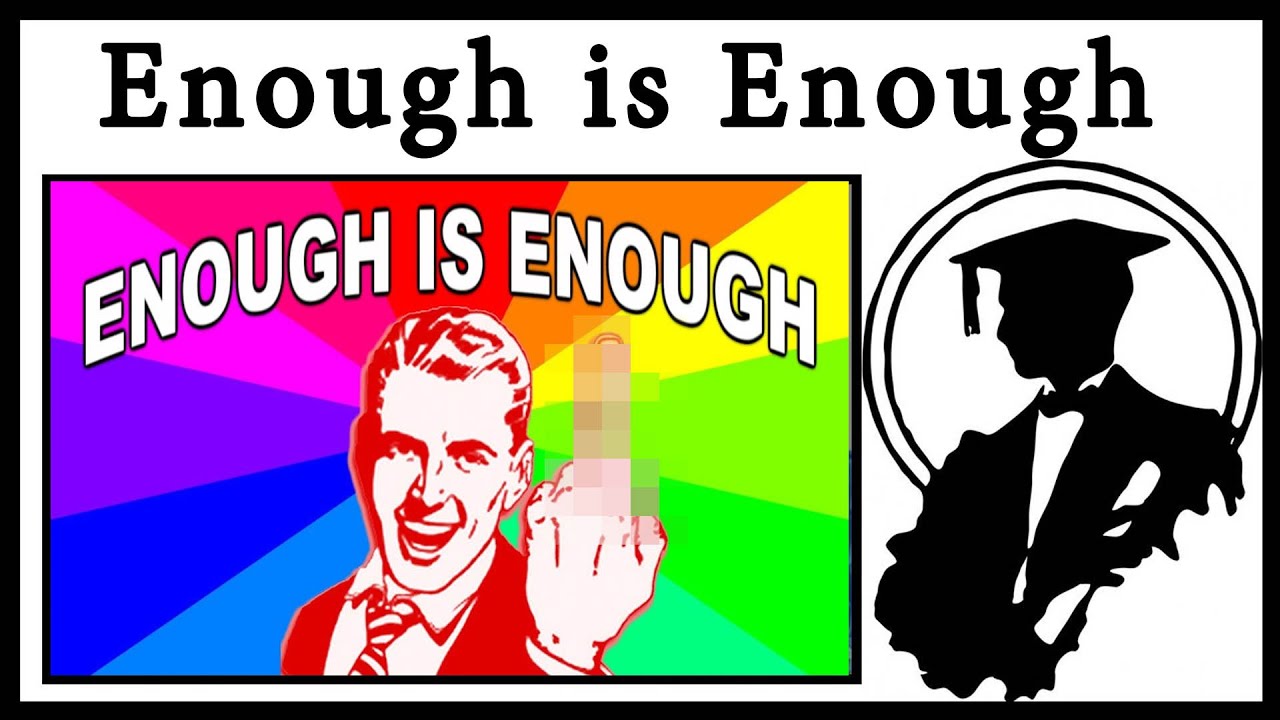
Meme culture, with its rapid spread and often humorous or satirical nature, can be a powerful tool for expressing opinions and ideas. Meghan Markle, as a prominent figure in the public eye, has become a frequent subject of memetic commentary. These memes, reflecting a range of perspectives, provide a fascinating lens through which to examine the interplay of public perception and social media trends.
Understanding these examples sheds light on the dynamics of meme culture and its impact on public discourse.
With Love Meghan meme culture has definitely gotten a bit out of hand, hasn’t it? It’s fascinating how quickly these trends take hold, and frankly, it’s impacting everything from social media to, surprisingly, fashion. Take a look at the work of Paula Canovas del Vas, paula canovas del vas , for example. Her designs seem to reflect a certain kind of meme-influenced aesthetic, which just goes to show how pervasive this meme culture is becoming.
It’s almost as if the constant barrage of memes has seeped into every aspect of popular culture.
Meghan Markle Meme Themes, With love meghan meme culture has become too powerful
Meme creation often centers around specific themes, reflecting current events, public opinions, or perceived characteristics of the subject. Analyzing these themes helps to discern the broader context and message behind the memes.
Table of Illustrative Examples
| Meme Image | Caption | Theme | Intended Message |
|---|---|---|---|
| A picture of Meghan Markle superimposed on a stereotypical “royal” image, such as a regal portrait or a scene from a period drama. | “The modern royal, updated.” | Satire of Royal Tradition | The meme satirizes the perceived disconnect between traditional royal expectations and Meghan Markle’s contemporary style and approach. The visual juxtaposition often uses exaggerated or ironic visual elements to highlight this. |
| A meme combining an image of Meghan Markle with a humorous image of a person struggling with a task or facing a challenge. | “Navigating the royal maze.” | Challenges and Responsibilities | The meme uses humor to depict the potential difficulties and complexities involved in Meghan Markle’s public role and the expectations surrounding it. It often utilizes relatable struggles and challenges to emphasize the pressure. |
| A meme featuring a comparison between Meghan Markle and another public figure, perhaps using a common visual format like a side-by-side image or a “this vs. that” template. | “Different approaches to the same role.” | Comparisons and Contrasts | The meme highlights perceived differences in approach or handling of similar situations or public duties between Meghan Markle and the other figure. Visual elements, such as facial expressions or body language, might be manipulated to emphasize the comparison. |
| A meme showcasing a particular statement or action by Meghan Markle and superimposed text highlighting the humorous or ironic aspect. | “A royal twist on a common phrase.” | Statements and Actions | The meme uses humorous text or commentary to highlight a specific statement or action by Meghan Markle, often turning it into a relatable or satirical moment. The meme’s success often relies on the relevance and relatability of the comment. |
| A meme depicting Meghan Markle in a relatable scenario, perhaps with exaggerated or ironic elements. | “Relatable royal struggles.” | Relatability and Humanity | The meme aims to humanize Meghan Markle by portraying her in a common situation. The meme intends to show a connection between the public figure and everyday experiences, potentially diminishing the perceived distance or elitism. The exaggeration in the meme is crucial to achieve the desired comedic effect. |
Impact on Different Demographics
Meme culture, with its rapid spread and inherent humor, impacts various demographic groups differently. The interpretation and reaction to Meghan Markle-related memes are shaped by pre-existing biases, cultural backgrounds, and personal experiences. Understanding these nuanced responses is crucial to grasping the full scope of memetic influence.Different age groups, genders, and nationalities often engage with memes in distinct ways.
Younger generations, particularly those active on social media, may find humor and relatability in memes that older generations might not fully grasp. Gender dynamics also play a role; memes targeting specific gender stereotypes can elicit different responses depending on the individual’s personal experiences and perspectives. National or cultural differences can lead to diverse interpretations, as humor is often culturally specific.
Age Group Differences
Younger demographics, particularly Gen Z and Millennials, are often more adept at navigating the complex world of online humor and memes. They are more likely to understand the nuances of internet culture and quickly decipher the often-subtle jokes within a meme. Older generations, while increasingly present online, may find some memes challenging to interpret due to their unfamiliarity with internet slang or popular culture references.
This difference in comprehension can lead to varying levels of engagement and understanding of the memes’ intent.
With Love Meghan meme culture has definitely gotten a little out of hand, hasn’t it? It’s almost like everyone’s obsessed with the latest drama, and it’s starting to feel a bit… overwhelming. Trying to navigate this meme-filled world while planning your summer wedding guest attire can be tricky, though. Finding the perfect summer wedding guest dresses is key to staying on-trend without getting lost in the digital chaos.
Summer wedding guest dresses can help you stay stylish without succumbing to the pressures of meme culture. Ultimately, we all need a little escape from the whirlwind of memes!
Gender-Based Interpretations
Memes related to Meghan Markle, like many other memes, can be influenced by existing gender stereotypes. These memes can be interpreted differently by men and women, sometimes triggering emotional responses based on gendered experiences. Understanding these gendered interpretations is vital to comprehending the overall impact of meme culture on different groups. Analysis of meme content and response patterns reveals whether memes perpetuate or challenge these gender stereotypes.
National and Cultural Variations
Meme culture transcends geographical boundaries, but cultural nuances influence the reception of memes. A meme understood in one country might be lost on audiences in another due to differences in cultural references, humor styles, or historical contexts. The effectiveness of a meme targeting a specific demographic or culture is highly dependent on its relevance to that audience’s understanding and experiences.
Illustrative Table of Reactions
| Demographic Group | Potential Interpretations | Likely Reactions | Example Meme |
|---|---|---|---|
| Gen Z | Sophisticated, quick understanding of online humor | Engaged, sharing, potential for inside jokes | A meme referencing a specific TikTok trend related to Meghan Markle. |
| Millennials | Relatable to broader cultural references | Engaged, sharing, potentially critical or supportive depending on perspective | A meme drawing on a popular 2010s pop culture reference that resonates with Millennials. |
| Baby Boomers | Potentially less familiar with online humor and slang | Limited engagement, or different interpretations | A meme utilizing recent online slang unfamiliar to Baby Boomers. |
| Women | Different responses depending on personal experiences and opinions about Meghan Markle | Critical, supportive, or indifferent, possibly reacting more strongly to gender-related aspects of the meme | A meme targeting Markle’s role as a woman in the public eye. |
| Men | Responses influenced by existing gender stereotypes and views of Meghan Markle | Engaged, but reactions can vary based on individual perspectives | A meme portraying Markle in a stereotypical feminine role. |
| International audiences | Responses contingent on cultural context, knowledge of Meghan Markle, and political climate | Reactions varying significantly depending on the specific context and political climate of the region. | A meme using culturally specific references related to Meghan Markle or the royal family. |
Examples of Targeted Memes
Memes targeting specific demographics often use relatable references and humor. A meme referencing a specific Gen Z trend will likely resonate with that group, while a meme referencing a pop culture phenomenon from the 1990s may not have the same impact. Analyzing the effectiveness of these memes depends on their ability to connect with the target audience’s interests and cultural context.
Examples of memes targeting specific demographics can be found across various social media platforms, reflecting the diverse ways in which meme culture is employed.
Beyond the Meme: Contextualization
Memes, more than just fleeting internet sensations, are deeply embedded within the fabric of contemporary society. They reflect, shape, and often satirize the cultural anxieties and triumphs of a given era. Understanding their power requires examining the broader social and cultural context that fuels their creation and proliferation. Beyond the simple visual gag, lies a complex interplay of social commentary, media influence, and humor.Memes aren’t isolated phenomena; they exist within a larger conversation, often mirroring existing societal trends or sparking new ones.
This context influences not only the content of the meme but also the way it’s received and interpreted. This deeper analysis reveals a richer understanding of the meme’s role in shaping public discourse.
Social and Cultural Context
The social and cultural context of a meme significantly impacts its meaning and reception. Memes often arise in response to current events, political tensions, or cultural shifts. For instance, the rise of the “Bernie Sanders” meme coincided with a period of heightened political polarization and discussion about progressive policies. This contextual understanding allows us to move beyond surface-level interpretations and delve into the deeper motivations and anxieties behind meme creation.
Media and Social Media’s Role
Media and social media platforms play a critical role in meme proliferation. These platforms provide the necessary channels for memes to spread rapidly and gain viral traction. The algorithms employed by social media sites, designed to optimize engagement, contribute to the exponential spread of memes. Moreover, traditional media outlets often pick up on popular memes, further amplifying their reach and impact.
Meme as Satire and Critique
Memes frequently serve as tools for satire and social critique. They allow individuals to express dissent, humorously challenge power structures, and highlight societal injustices. Consider the numerous memes criticizing political figures or social norms. Through humor and exaggeration, memes can expose hypocrisy, absurdity, and shortcomings within society, prompting reflection and discussion.
Humor and Irony in Meme Culture
Humor and irony are fundamental components of meme culture. Memes often rely on unexpected juxtapositions, wordplay, and visual gags to elicit laughter. The use of irony allows for a layer of detachment, enabling users to express complex ideas or criticisms without direct confrontation. The interplay between humor and irony creates a dynamic space for critical engagement and social commentary, often circumventing censorship or direct criticism.
Final Wrap-Up
Ultimately, the discussion of “with love meghan meme culture has become too powerful” raises crucial questions about the evolving nature of online communication. Is this phenomenon simply a harmless reflection of popular culture, or does it represent a more significant shift in how we interact and form opinions? We’ll attempt to answer this by examining the impact of memes on public discourse and consider the possible future trajectory of meme culture, both in terms of Meghan Markle’s continued influence and the overall landscape of online expression.



